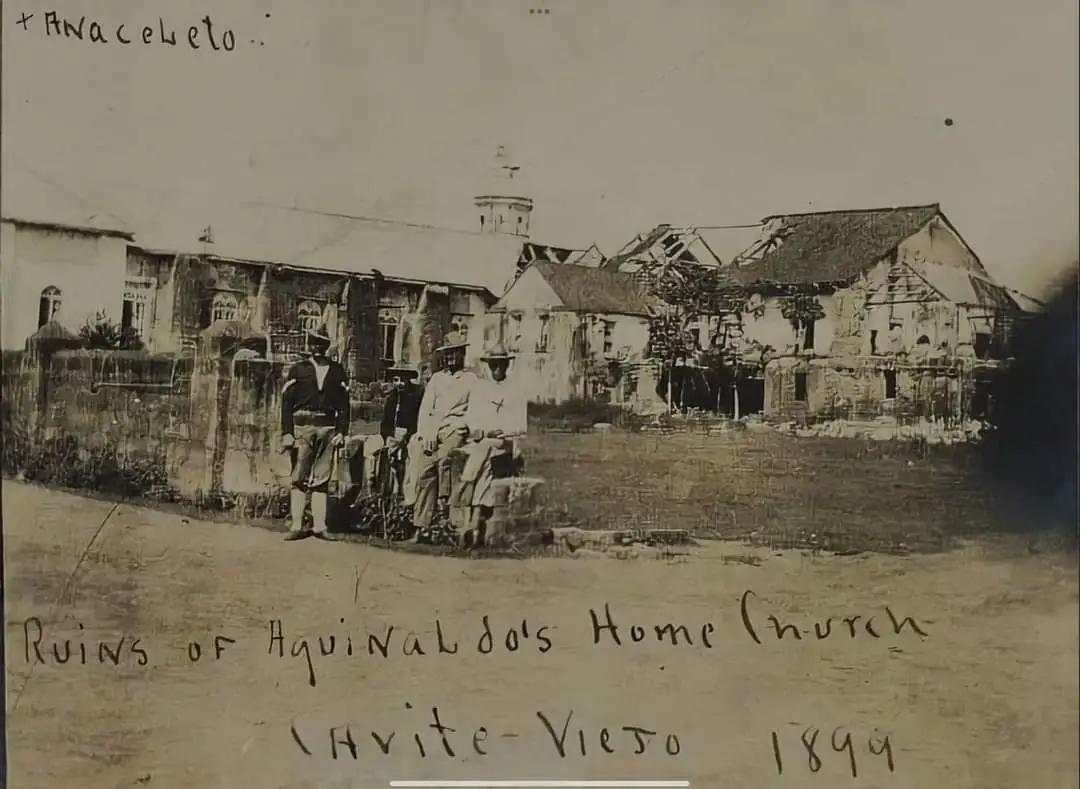
The Kawit Parish, now officially recognized as the Sanctuario Diocesano y Iglesia Parroquial de Santa Maria Magdalena, has reached a significant milestone, commemorating 400 years of evangelization by the Catholic faith.
This historic parish in Cavite, the site of the declaration of Philippine Independence from Spain in 1898, celebrated its first anniversary as a Diocesan Shrine on July 20, 2024, and its 400th year of spreading the Christian faith on July 22, coinciding with the Feast of its Patron, Saint Mary of Magdalene.
SEE: Kawit Parish Celebrates 400 Years With Grand Magdalenean Procession | Ahnnie Sarile
Kawit’s journey of evangelization began in 1624 when Jesuits embarked on a mission to Christianize the coastal town of Cavite Viejo, now known as Kawit. By 1715, the iconic stone church, which still stands today, was completed. Earlier, in 1615, the Jesuits established a temporary church dedicated to Nuestra Señora de Loreto and a mission house in Cavite Puerto, where they ministered to the spiritual needs of the communities in Cavite el Viejo and Binakayan.
Despite a shortage of personnel, the Jesuits prioritized Cavite el Viejo over Cavite Puerto, solidifying the area’s Christian foundation. However, the landscape of the Church’s leadership changed drastically in 1768, following a royal decree that expelled the Society of Jesus from Spain and its empire, leading to the transfer of Jesuit parishes to secular clergy by 1771.
See more pictures of the Kawit Parish Church circa 1900s:
Throughout the years, the parish of Cavite el Viejo witnessed turbulent times, including the arrival of a royal order in 1849 that led to the transfer of parishes in Cavite to different religious orders. During this period, prominent clergy members, Fathers Mariano Gomes and Pedro Pelaez, played significant roles in navigating the challenges faced by the Church. These challenging years eventually contributed to a new sense of national consciousness, setting the stage for the revolutionary movement.
The Church’s legacy is further highlighted by its association with the leaders of the Philippine Revolution, including General Emilio Aguinaldo and other key figures who were baptized within its walls. Today, the Parish of Saint Mary Magdalene continues to serve the spiritual needs of over 71,000 Catholics across various barangays in Kawit, Cavite.
WATCH: Philippines Marks 126th Independence Day at Historic Aguinaldo Shrine in Kawit
With its recent designation as a Diocesan Shrine, the Sanctuario Diocesano y Iglesia Parroquial de Santa Maria Magdalena stands as a testament to 400 years of unwavering faith and service to the community. This remarkable journey of faith, resilience, and leadership is a source of pride for the people of Kawit and beyond.
Join us in celebrating this historic milestone! Explore the rich history and heritage of Kawit Parish and discover how it continues to inspire faith and unity in the community.
Be part of our vibrant Good News Pilipinas community, celebrating the best of the Philippines and our global Filipino heroes. As winners of the Gold Anvil Award and the Lasallian Scholarum Award, we invite you to engage with us and share your inspiring stories. For stories Making Every Filipino Proud, reach out to GoodNewsPilipinas.com via Facebook, Twitter, Instagram, TikTok, YouTube, and LinkedIn. LinkTree here. Let’s spread good news together!
The post Kawit Parish Marks 400 Years of Evangelization, Celebrates First Year as Diocesan Shrine | Ahnnie Sarile appeared first on GoodNewsPilipinas.com.

0 Comments